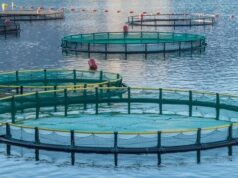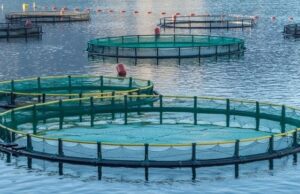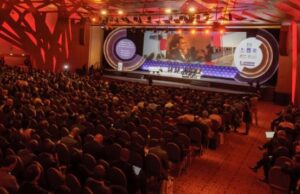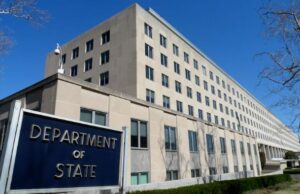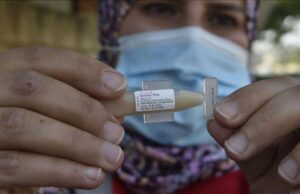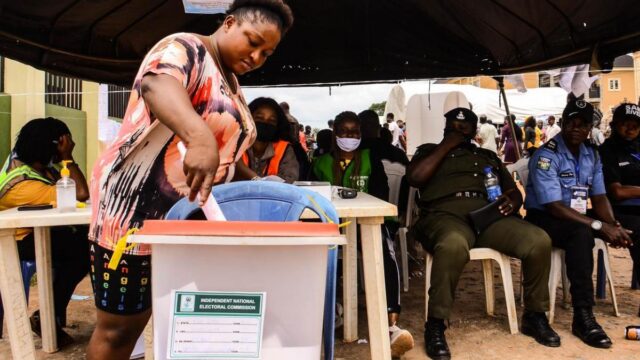
(4 Minutes Read)
South Africa is gearing up to hold its general election. A video, which went viral has purportedly been used to undermine the credibility of the outcome, raising suspicions of the transparency of the process
South Africa is gearing up to hold its general election. A video, which went viral has purportedly been used to undermine the credibility of the outcome, raising suspicions of the transparency of the process.
Almost a million votes have already been cast in special voting permitted for those who are unable to vote on Wednesday. Polls open at 7 a.m. Wednesday, and according to the IEC, more than 27 million voters total are registered in the country of 60 million.
Sy Mamabolo, Chief Electoral Officer of the Independent Electoral Commission, said at the briefing that in this election there’s a clear orchestration to undermine the credibility of the outcome.He was referencing videos of an incident in the Eastern Cape province involving a truck that contained electoral rolls that was looted amid a taxi strike.
As reported by www.trendsnafrica.com, the ruling party, the African National Congress, is for the first time facing the possibility of losing power with several polls putting their support at less than 50%. If they are unable to obtain more than 50% of the vote, they will have to form a coalition with other parties if they want to re-elect President Cyril Ramaphosa under the country’s parliamentary electoral system.
After 30 years of dominating South African politics, the ruling African National Congress will face its toughest election on Wednesday as most opinion polls predict it will lose its parliamentary majority for the first time.
President Cyril Ramaphosa hopes the May 29 ballot will lead to his re-election. But if the ANC does lose its majority, it will force it into a coalition to form a government — also a first for the country and something that may complicate policymaking in Africa’s most advanced economy.
Ramaphosa was a senior figure in the ANC in the early 1990s and was once seen as a protege of Mandela. He left politics to become a successful businessman before returning as deputy president of South Africa in 2014. He became president in 2018 after Jacob Zuma resigned under a cloud of corruption allegations. Ramaphosa has tried to rebuild the reputation of the ANC by cracking down on government graft. However, unemployment has risen to 32% during his presidency — the highest in the world — while he has struggled to curb poverty.
An electricity crisis has led to power outages across the country of 62 million due to failures at the state-run electricity supplier. It badly damaged the economy and Ramaphosa’s reputation as someone who could fix South Africa’s problems, even if the blackouts were viewed as a result of mismanagement during the Zuma administration.
The ANC is still expected to win the largest share of votes, but if it receives less than 50% as predicted, it will need the help of coalition partners to re-elect the 71-year-old Ramaphosa.
The centrist DA has promised to “rescue” South Africa from what it says is the corruption and mismanagement of the ANC but has never come close to winning a national election. The DA won 22% in the last general election in 2019 to the ANC’s 62%.
The DA entered a pre-election agreement with smaller opposition parties, hoping their combined vote might clinch a majority and remove the ANC. But they would all have to increase their share significantly and it’s seen as unlikely.The Economic Freedom Fighters (EFF) has risen rapidly to become South Africa’s third biggest party in Parliament since it was formed in 2013 by Julius Malema, a former ANC youth leader who was expelled from the ruling party.
The EFF has called for the nationalization of mines and the redistribution of land to poor Blacks. In the meantime, former President Zuma added a new dimension when he announced in December that he was turning his back on the ANC he once led and returning to politics with a new party.
Zuma’s MK Party is not expected to challenge the top three, but it is expected to further erode the ANC’s vote just as the ruling party faces its sternest election test. The 81-year-old former leader still commands support, especially in his home KwaZulu-Natal province.
Read Also:
His reemergence also raised security concerns for the election after his conviction for contempt of court and prison sentence in 2021 sparked a week of rioting and looting that led to the deaths of more than 350 people in the worst violence in South Africa since the troublesome last days of apartheid.



